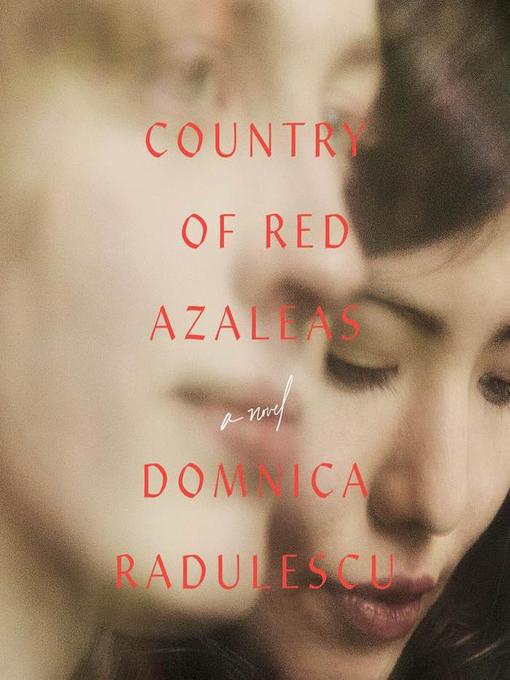
Country of Red Azaleas
فرمت کتاب
audiobook
تاریخ انتشار
2016
نویسنده
Yelena Shmulensonناشر
Hachette Audioشابک
9781478964483
کتاب های مرتبط
- اطلاعات
- نقد و بررسی
- دیدگاه کاربران
نقد و بررسی

February 29, 2016
Amid the disintegration of Yugoslavia in the last two decades of the 20th century, a Serbian girl, Lara, chronicles her obsession with Marijaher, her beloved Bosnian friend. Lara meets “the girl from Sarajevo” at school in Belgrade when they are seven. The two girls grow up sharing everything, from summer holidays to student protests. Marija is the charismatic leader, Lara the adoring follower. As the political situation becomes grave, the two friends part when Lara leaves for Washington, D.C., with her American husband. Lara loses touch with Marija as war destroys their homeland. When the conflict subsides and Marija finally surfaces, she’s suffered unspeakable tragedy—she has been raped, and her family slaughtered. Lara’s sheltered life unravels too, possibly because she is so far removed from her true self. Finally reunited with the damaged Marija, Lara embarks on a journey of healing with her cherished friend. Radulescu’s (Train to Trieste) subject matter demands a writing style and tone to match its gravity; instead this book is awash with overwrought, overwritten sentimentality. As a result, Lara and Marija’s story never really comes together for the reader.

With tenderness and pathos, Yelena Shmulenson narrates this unusual story of passionate friendship between two women. Lara first sees Marija in her primary school class in Belgrade. She is immediately smitten by the beautiful young girl from Sarajevo. Shmulenson's hint of an Eastern European accent works well as the girls' friendship develops through elementary school, their bond growing stronger when, as university students in Belgrade, they engage in radical protests. When Lara meets and marries an American soldier and moves to Washington, DC, Marija moves back to Sarajevo as a journalist. Shmulenson deftly delivers the lush, if sometimes overwrought, prose describing the cities, but her strongest moments occur when she's describing Lara's guilt at having left her war-torn homeland and her eventual return and desperate search for Marija. S.J.H. © AudioFile 2016, Portland, Maine

January 15, 2016
An intense friendship between two women, one Serbian and one Bosnian, withstands the war in Serbia and its aftermath. Radulescu delivers a third novel (Black Sea Twilight, 2011, etc.) spanning the end of communism to the beginnings of the Iraq War. At age 7, Lara falls in love with her classmate Marija, who moved from Sarajevo to Belgrade. Their friendship is charmed; they devour old Hollywood movies, honey almond sweets, and stolen fruit. Marija's Sarajevo is depicted as fantastically luscious, with "creamy white mosques" like "wedding cakes" and the scents of "red azaleas, honey, coffee, and apricots" everywhere. The story glosses over their time as radical students at the University of Belgrade, sharing an effeminate lover, until the threat of war becomes apparent and Lara meets Mark, an American scholar she quickly marries. She moves to Washington, D.C., while Marija returns to Sarajevo to work as a journalist. Lara bristles at being exoticized by Mark's colleagues while she herself exoticizes the Tunisian professor she eventually takes as a lover while at an academic conference in France. Here, the language becomes overwrought: "The colors of Provence burned desires into my soul, and its sharp winds swept over me with inebriating flutters." Because a long time period is covered in relatively few pages, the middle of the narrative, concerning Lara's marriage and affair, often feels thin and distant--plot points rushed through in order to return to the novel's true subject. The story deepens when Lara plunges into a dangerous search for Marija while struggling with her identity as a Serbian and a woman who escaped, rather than confronted, the war. At turns undercooked and syrupy, the novel's depiction of Lara and Marija's bond is nevertheless a moving portrait of humanity's best overcoming humanity's worst.
COPYRIGHT(2016) Kirkus Reviews, ALL RIGHTS RESERVED.

March 15, 2016
At once the story of an intense female friendship, an immigrant's hard adjustment to America, and the particular horrors of the recent Balkan wars, Radulescu's latest (after Black Sea Twilight) packs a lot into a swift, emotionally wrought chronicle. Its narrator, Lara, named after the heroine in Doctor Zhivago (the movie, not Boris Pasternak's novel), is immediately drawn to feisty, beautiful Marija when she moves from Sarajevo to Belgrade and becomes Lara's classmate. They are inseparable through college, fiercely engaging in politics together and even sharing a boyfriend. But in the early 1990s, with the fall of communism, Serbian Lara meets an enterprising young American named Mark and leaves for America as his wife, while Bosnian Marija returns to Sarajevo and defiantly helps run a newspaper during the city's terrible bombardment. As Lara struggles with life in America and her increasingly distant marriage, she is desperate to find out what has happened to Marija. Then, in the novel's most significant passages, she decides to go find her friend. VERDICT Some readers will find Lara's voice too gushy at first, but the novel wallops us with a horrible sense of humanity against humanity, redeemed by the gleam of Lara and Marija's genuine love.--Barbara Hoffert, Library Journal
Copyright 2016 Library Journal, LLC Used with permission.

























دیدگاه کاربران